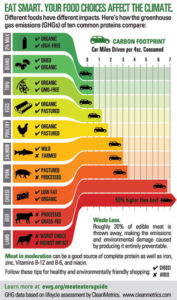Most Sustainable Proteins
Choosing the most sustainable proteins isn’t an easy decision. There are a variety of factors to consider, including climate change and the number of calories consumed. In addition to the amount of calories, you should also consider the environmental impact of the protein you choose. Luckily, many options are available. Fortunately, we can start with the least expensive sources of protein. Vegetables and grains are the most environmentally friendly sources of protein, but you’ll need to research which ones are the most sustainable.
Organ meats, such as liver and kidney, are the most sustainable proteins. They can also contribute to better animal welfare and environmental well-being. And while they’re not the most expensive protein sources, they’re still considered to be the healthiest. In addition to being the most sustainable, organ meats are also some of the most nutritious. But even if you can’t avoid meat altogether, try to make it as sustainable as possible.

While animal proteins aren’t the best sources of protein for the environment, they’re a great choice. Eggs are one of the least impactful sources of animal protein, as the production of packaging and cartons is much more damaging than the actual egg itself. It’s also important to choose eggs that are free-range and organic, as these chickens don’t require much feed. In fact, 100 grams of protein from eggs releases 3.8 kilograms of carbon dioxide into the atmosphere.
What Are the Most Sustainable Proteins?
There are many ways to reduce the impact of animal-based meat on the environment. You can opt for organ meats and poultry. Besides being nutrient-dense, organ meats are also healthier. In terms of animal welfare, they’re the most nutritious and sustainable proteins. The most sustainable types of meats are organic, pasture-raised and grass-fed. These are the best sources of protein.
Organ meats are among the most protein-dense foods, and they improve animal welfare and environmental well-being. They are also the healthiest. Although some sources of animal protein are not sustainable, they still offer high levels of protein. In addition, the best sources of protein are often organic or pasture-raised. Choosing a sustainable source of meat is the best way to reduce your meat intake without compromising quality.
Various methods of production vary. Depending on the protein, you should choose the most sustainable source for consumption. For example, organic and grass-fed meat are the most sustainable proteins. These sources are best for the environment and animals. You should consider the taste and texture of these protein-rich foods. You should also be aware of the nutritional value of the protein inorganic products. Lastly, animal-based foods should be organic and pasture-raised.